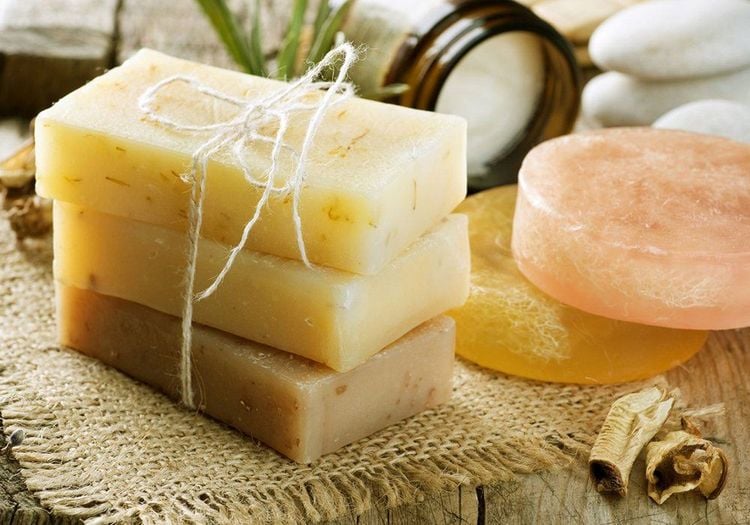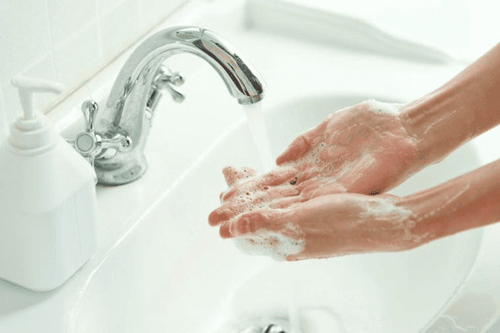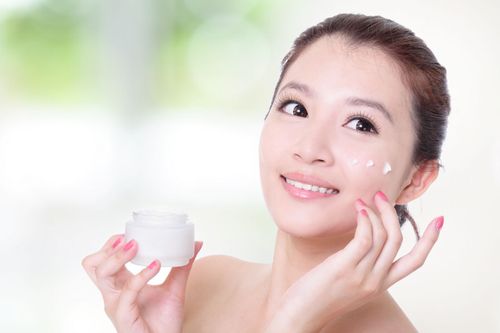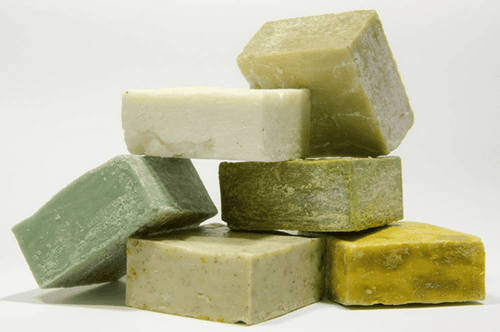This is an automatically translated article.
When shopping for soaps and body washes, you may have seen products labeled “antibacterial” and you selected them in the hope that they will help keep your family safer. You might have thought those products would reduce your risk of getting sick, spreading germs, or getting an infection. But does antibacterial soap really provide such benefits?
1. Is it good to use antibacterial soap?
According to the US Food and Drug Administration (FDA), there is not enough scientific evidence to prove that over-the-counter (OTC) antibacterial soaps are better at preventing illness than washing with ordinary soap and water.
So far, the benefits of using antibacterial hand soap have not been proven. In addition, the widespread use of these products over a long period of time has raised questions about the potential for negative effects on the health of the users.
After researching this issue, including reviewing available literature and holding public meetings, in 2013 the FDA issued a proposed rule that requires safety and efficacy data from manufacturers, consumers and others if they wish to continue to market antibacterial products containing antibacterial ingredients, but very little information has been provided.
That's why the FDA is issuing a final rule whereby OTC consumer hand sanitizer products include liquid hand soaps, foams, gels, bar soaps, and body washes that contain ingredients. Many antibacterial active ingredients including triclosan and triclocarban will no longer be marketed as before.
Because the manufacturers have not proven that the ingredients are safe for daily use over a long period of time. Additionally, manufacturers have not indicated that these ingredients are more effective than regular soap and water at preventing illness and the spread of certain infections. Some manufacturers have already begun removing these ingredients from their products, ahead of the final FDA regulation.
Theresa M. Michele, of the FDA's Over-the-Counter Drug Products Division, said: “Following simple hand-washing practices is one of the most effective ways to prevent the spread of many types of infection. germs and diseases at home, at school and elsewhere”. This is a simple method, but it gives good results.
FDA's final rule covers only antibacterial soaps for consumption and shower gels used with water. It does not apply to hand sanitizers or hand towels. It also does not apply to antibacterial soaps used in healthcare settings, such as hospitals and nursing homes.

Xà phòng kháng khuẩn có chứa phần lớn các hạt chất kháng khuẩn
2. What makes antibacterial soap different?
Antibacterial soaps sometimes called antibacterial or antiseptic soaps contain certain chemicals that are not found in regular soap. These ingredients are added to many consumer products for the purpose of reducing or preventing bacterial contamination.
Many liquid soaps that are labeled antibacterial contain triclosan, an ingredient of interest to many environmental and academic groups. Animal studies have shown that triclosan alters the way certain hormones work in the body and raises concerns about the effects of use in humans. We still don't know how triclosan affects humans and more research is needed.
There is no data to prove that these ingredients provide better protection from disease and infection. Scientists think that using these products can give people a false sense of security.
If you use these products thinking they are more protective than soap and water, that is incorrect. If you use them because it feels better, there are plenty of other products with similar formulas that won't expose your family to unnecessary chemicals. And some manufacturers have begun modifying products to remove these ingredients.
How do you know if a product is antibacterial? For over-the-counter products, antibacterial products often have the word "antibacterial" on the label. In addition, the information label on the soap or shower gel is an indication that the product contains antibacterial ingredients.
SEE ALSO: Instructions for properly washing hands with soap

Trong xà phòng kháng khuẩn có chứa triclosan
3. Triclosan and health concerns
Today, we can find Triclosan in many places. It has been added to many consumer products including clothing, kitchenware, furniture, and toys to prevent microbial contamination. As a result, people's levels of long-term exposure to triclosan are higher than previously thought, raising concerns about potential risks associated with lifelong use of the ingredient.
In addition, laboratory studies have suggested that triclosan contributes to antibiotic resistance in bacteria. Some data suggest that this resistance can have a significant impact on the effectiveness of medical treatments, such as antibiotics.
FDA and the Environmental Protection Agency (EPA) have worked closely on scientific and regulatory issues related to triclosan. This joint effort will help ensure government-wide consistency in regulation of this chemical. The two agencies are looking at the health effects of triclosan from two different directions.
The EPA regulates the use of triclosan as a pesticide and is in the process of updating its assessment of the effects of triclosan when it is used in pesticides. The FDA's focus is on the effects of triclosan as it is used frequently by consumers in hand soaps and body washes. By sharing information, the two agencies will be able to better measure the exposure and effects of triclosan and how different uses of triclosan may affect human health.
EPA re-evaluates each active pesticide every 15 years. The EPA Final Action Plans for the triclosan risk assessment can be found in the EPA-HQ-OPP-2012-0811 log.
FDA rules have yet to apply to three chemicals:
Benzalkonium chloride Benzethonium chloride Chloroxylenol Manufacturers are developing and planning to submit new safety and efficacy data for these ingredients.
Except for the three ingredients that are still being studied, all products using the remaining 19 active ingredients will need to change their formulation or they will no longer be available to consumers. Manufacturers will have one year to comply with this rule.
This rule does not apply to hand sanitizer. The FDA recently issued its final rule on OTC hand sanitizers and will continue to review three active ingredients commonly used in hand sanitizers.
4. Should consumers use plain soap or antibacterial soap?
So what should consumers do? Wash hands with ordinary soap and water. It's still one of the most important steps you can take to avoid getting sick and keep germs from spreading. Because regular soap not only removes dirt, it also kills bacteria and other microorganisms.
Please dial HOTLINE for more information or register for an appointment HERE. Download MyVinmec app to make appointments faster and to manage your bookings easily.
References: fda.gov, health.harvard.edu













